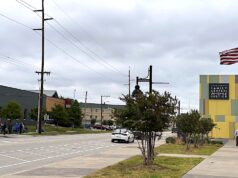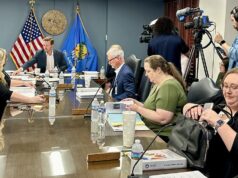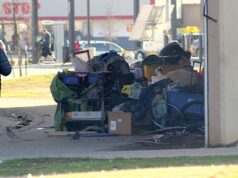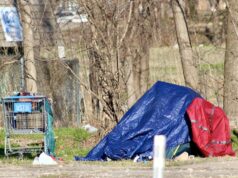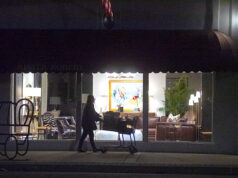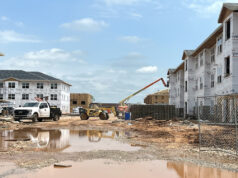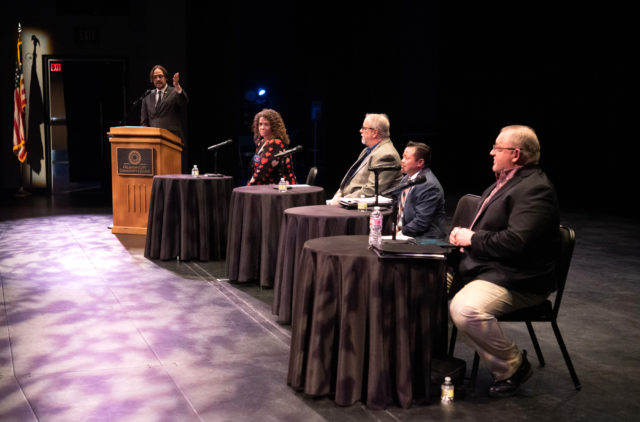
The four candidates for Oklahoma City’s open Ward 5 City Council seat mostly agreed on the pervasiveness of homelessness and the need for better transportation infrastructure, but they offered varying views on how a proposed a new arena for the Thunder should be funded during a debate Thursday night hosted by NonDoc at Oklahoma City Community College.
Audra Beasley, Matt Hinkle, Thuan Nguyen and Jeff Owen are battling to replace longtime Councilman David Greenwell, who is retiring at the end of his third four-year term.
A heavily residential area, OKC Ward 5 spans south from Southwest 59th Street, bordering Moore to the east and Newcastle on its southwest. It includes Westmoore High School and Earlywine Park and is home to about 85,000 people.
Voters in Oklahoma City wards 2, 6 and 8 will also head to the polls Tuesday, Feb. 14, for the city’s primary election. If no candidate receives more than 50 percent support, a general election between the top two finishers will be held April 4.
NonDoc is also hosted a debate between Ward 6 candidates Wednesday, Feb. 8.
Homelessness a pervasive issue
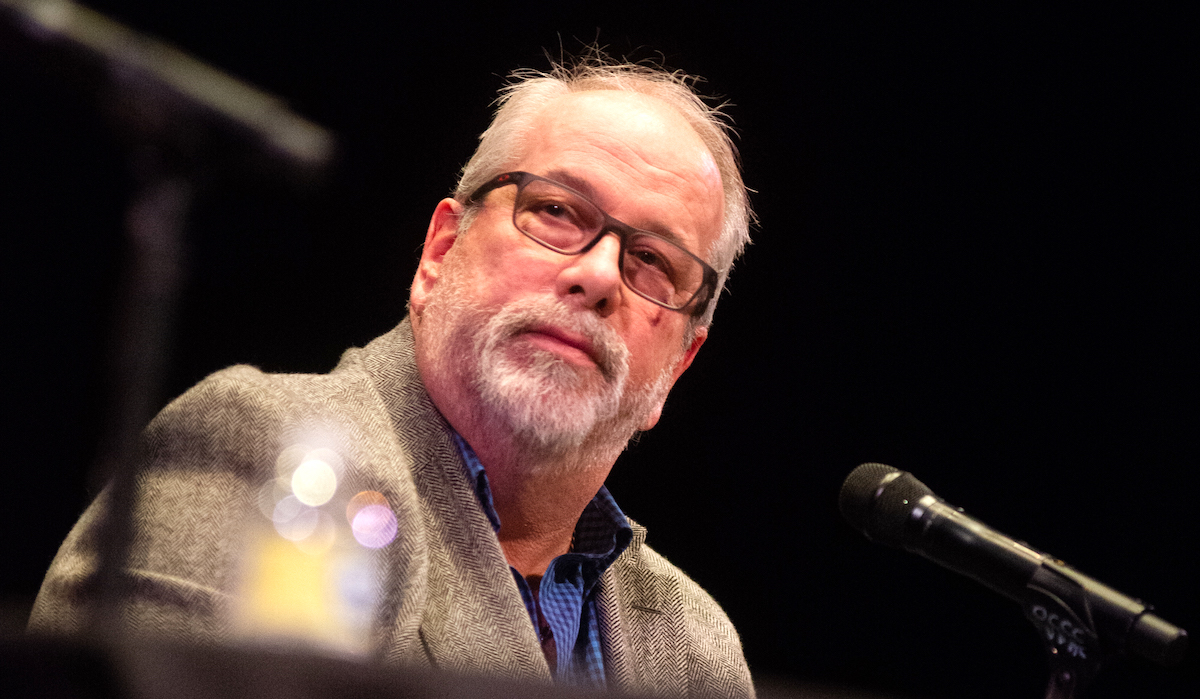
All four OKC Ward 5 candidates said homelessness has come up frequently from residents of the ward during their campaign. A survey last year found that there were about 1,339 homeless people in Oklahoma City on the day the survey was done, and likely more who went uncounted.
Beasley said common sense solutions, coupled with a response from the state Legislature, would help address the issue in Oklahoma City. She said basic things like the cost of an ID can keep people on the streets.
“I ran into a gentleman today, and he has $1,200 in his bank account,” she said. “He’s been sleeping out in the cold because he can’t access his money because he doesn’t have an ID, so I’ve asked the Oklahoma Legislature to consider legislation. If we provide it for our senior citizens, we can provide it for those that are unhoused in the city and state.”
Hinkle said he hears about homelessness every time he knocks on a door. He said it’s common for people to be concerned about the problem, but many are often afraid of having solutions or resources near their own home.
“They want a humane way that they’re ‘not in my neighborhood anymore.’ (…) There was a MAPS 4 meeting today where they had a great presentation on how some of that MAPS money is being accumulated to spend on some of the homeless issues,” he said. “But in all reality, everybody I talk to [says] their major concern is what are we going to do with the homeless? And I mean, we can talk about roads and we can talk about infrastructure and economic development, but that’s really in the forefront of everybody’s mind.”
Nguyen, who emigrated to the United States from Vietnam in 1981, said more robust outreach focusing on mental health could help reduce the homeless population, but he said it isn’t a problem the city can solve on its own.
“It needs to be addressed also not only working with our city, but it takes someone to work with our county, our state and our federal government, because if want to do things right, we need to actually look at affordable housing, number one,” he said. “Number two, increasing our street outreach team to address mental health and addiction problems, and taking and helping our challenged homeless population get off the streets and get the proper help that they need.”
Owen echoed those concerns about the correlation between mental health and homelessness.
“Ninety percent of homeless in America, and I’m sure Oklahoma City is the same way, 90 percent of them have mental health issues and also substance abuse issues,” he said. “So I think the most important thing is collaboration with our police department so that they can enforce the laws that are on the books, and then also intervention so that they can find those individuals who have substance abuse issues and those who have the mental health issues so that we can remove them from the situation and get them the treatment that they need.”
Hinkle, who currently serves as the Ward 5 representative on the OKC Planning Commission, said housing must be available if a city wants to address homelessness.
“Affordable access to housing is the key component,” Hinkle said. “And when you get people indoors, then you can start fixing them.”
Candidates were asked whether they would support a change to the OKC code granting owners of R1-zoned residential lots an inherent right to build an “accessory dwelling unit” on their property for additional housing.
Calling in-fill development “crucial” and noting that homelessness can only be addressed if more housing is available, Hinkle said he is “all for that.” Beasley also said she was in favor, saying that she supported property-owner rights. Nguyen said homeowner associations should have a say in the matter, and Owen agreed, emphasizing that guidelines would need to be maintained.
Public transit practicality questioned
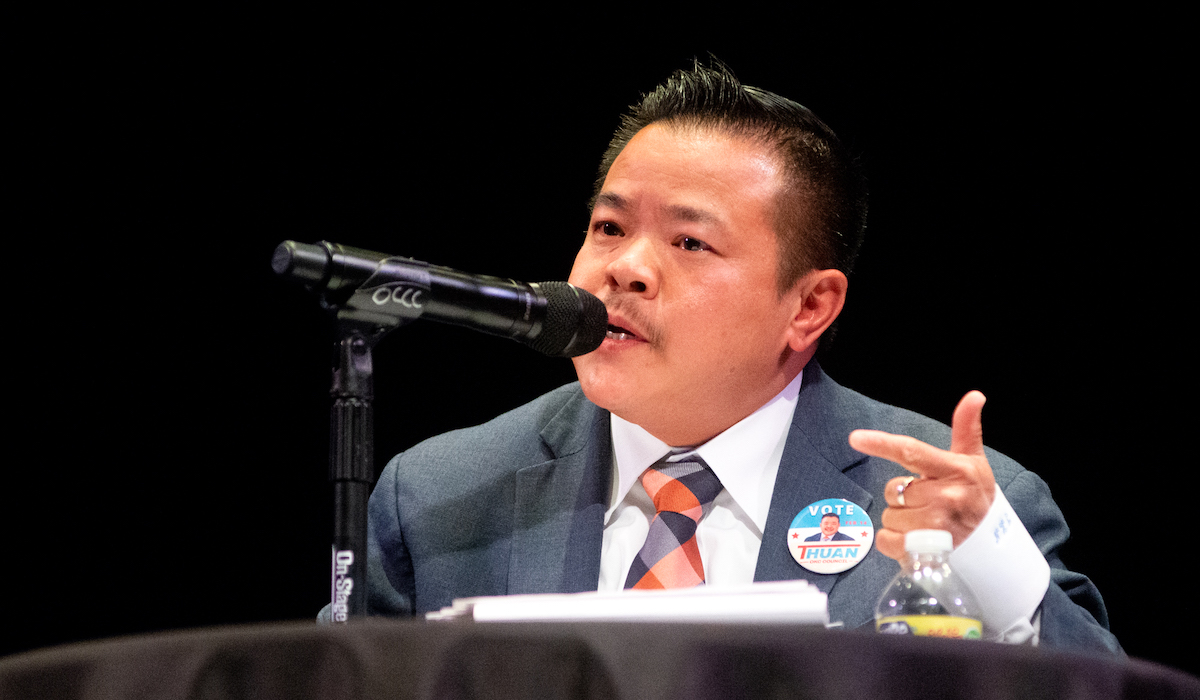
Nguyen has served on the city’s Bus Rapid Transit Advisory Board and the MAPS 4 Connectivity Subcommittee. He said Ward 5 only has a handful of bus routes, which often do not stop at places where people need them most, including grocery stores.
“Three of the bus routes will only go — not even to OCCC — it only goes to 74th Street, right here at the highway,” he said. “I’ve had to take the bus once because my car broke down. From this bus stop, I had to walk three miles to my house. There’s only one bus stop that goes all the way down 104th, and that’s at Santa Fe and Walker. So what purpose does that serve if there’s no ridership right there?”
That led to a joke from Owen as he opened his response.
“I wouldn’t have walked three miles. I would have called Uber. I’m not in as good of shape as you are,” Owen said to Nguyen. “I think that we need to have a transit system that serves the community but also serves the community needs. If one person is going to ride at a particular route area, that’s obviously not a cost effective use of the taxpayer dollars. Looking at the BRT, their analysis, they’re actually looking to expand down. Right now, I believe it only goes as far south as 104th Street, but it’s going to go down to 149th street. It will encapsulate the senior wellness center, but I think we have to be strategic in how we do that.”
Beasley said the city is geared almost exclusively toward people who own cars, leaving many with few options when it comes to transportation. She suggested expansion of bus routes and hiring more drivers as one option.
“We have people in our communities that do not have cars or they choose public transportation, and bicycling and walking over having a vehicle,” she said. “Some people can’t afford a vehicle and to put our money toward connecting our citizens to the major locations in our city should be a huge priority, and it will be a priority.”
Hinkle said that, given OKC’s size, it would be impractical to blanket the entire city in bus routes.
“The EMBARK system as it is now doesn’t cover south Oklahoma City as well as it should, and in defense of EMBARK, the ridership isn’t there to justify more bus shelters,” he said. “That would be something that we would look at and determine how to better serve south Oklahoma City with transit, whether it be smaller buses or closer stops to each other, going further out to a park and ride kind of thing.”
Asked to raise their hands if they believed the OKC streetcar covering the Midtown and Bricktown areas was a good investment, all four OKC Ward 5 candidates declined, and none said that the streetcar should be expanded.
Mixed views on arena funding, priority
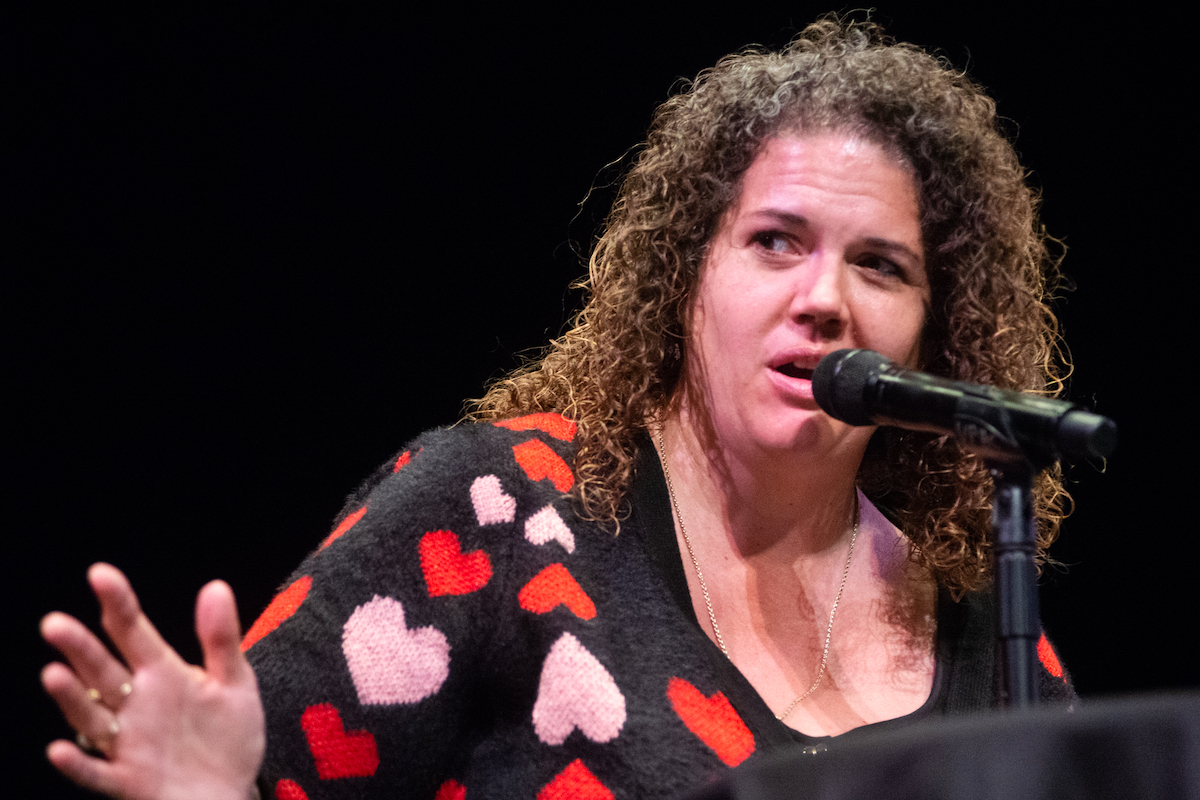
The candidates offered differing views on a proposed new arena for the Thunder. The Paycom Center is the team’s current home, but given its age and relatively small footprint, Mayor David Holt has floated the idea of building a new arena. That could cost as much as $500 million, or more.
The formal proposal is expected to be developed later this year, and Ward 5 candidates were asked their preference on the finances for a new arena: Should the city pay for the entire arena, should the team’s wealthy owners build their own arena, or should public dollars be paired with private dollars to get the deal done?
Beasley said it is time for the team’s owners to pony up and pay their own way.
“If we go in and retrofit that building and bring up some standards and go in and just make it all big and beautiful again, I think that’s what we need to do rather than look at building a brand new building,” she said. “If the owners of the Thunder need a new arena, then I think they have the money to build a new arena.”
Owen had similar views.
“Anyone who knows me knows I’m conservative,” he said. “I have an iPhone eight. I don’t need an iPhone 14. This does everything I need to, and I think when we look at the arena, there’s other things that are higher priority — taking care of the streets, taking care of the homeless situation. How can we justify paying for that with all the other social issues that we have going on? I don’t think the voters would approve it.”
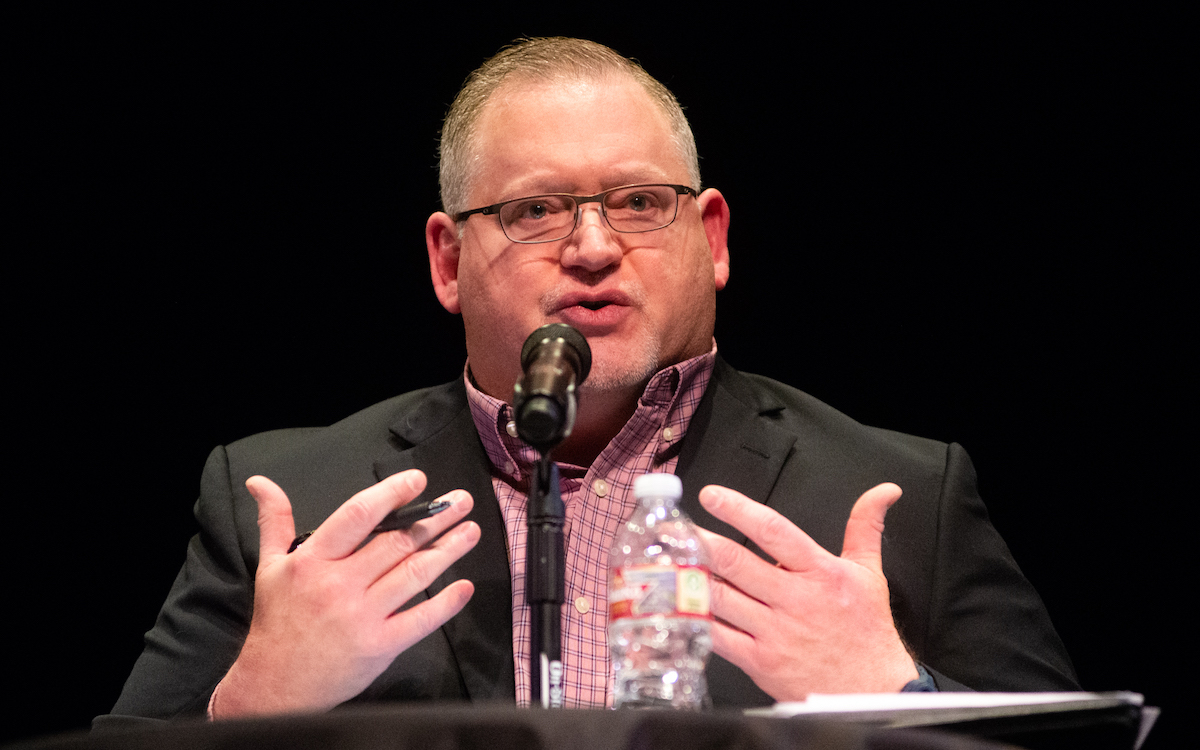
When pressed, Owen said he said he thinks the city’s focus should be elsewhere.
“The arena is doing a good enough job right now,” he said. “We could look at that down the road, but I don’t think that is something that’s pressing.”
Hinkle said there is no way to measure what the Thunder franchise has meant to OKC, and he said it’s premature to comment on the issue until there is a proposal.
“The short answer is, if I’m elected, I will do everything in my power to make sure that the Thunder stays in Oklahoma City,” he said. “It’s an unfair question, because you don’t know what the deal looks like (and) who pays for what. It can’t be all public money. It can’t be all private money. Maybe it’s some county money and state money and a little bit of everybody’s money. But as far as I’m concerned, the Thunder needs to stay as long as it’s feasible.”
Nguyen said the team needs to show more on the court, but he echoed Hinkle when it comes to the impact having an NBA basketball team has had on the city. Nguyen said a new arena probably should not be at the top of the agenda right now, and when it does happen it should not be completely financed by taxpayers.
“I feel that we need to win a national championship and fill our stadium a little bit more before we can think about that investment dollars — public money,” he said. “But I will agree with Matt (Hinkle) on that. It’s gonna need some public (money) but private investment as well. So there’s got to be some collaborations and partnerships.”










